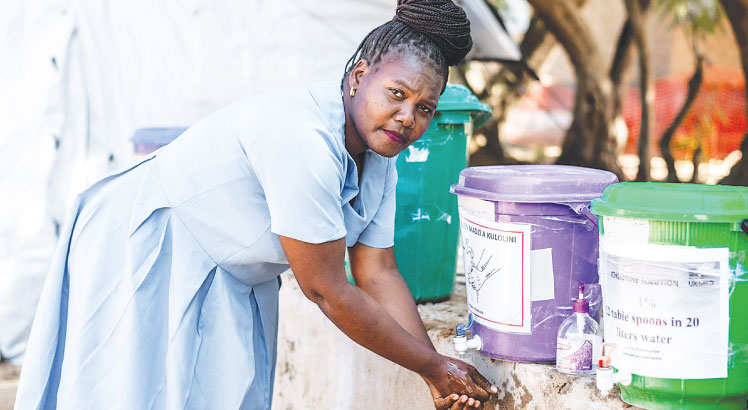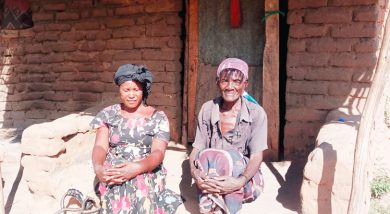Tackling cholera at the source
W
hen a businessperson from Limbe Market in Blantyre contracted cholera in July 2022, health workers at South Lunzu Health Centre were soon overwhelmed by patients from Machinjiri, the city’s largest township.
“The patient may have taken contaminated food or water, but the cases quickly rose to 17 a day, leaving us with no time for rest,” recalls senior health surveillance assistant (HSA) Susan Muyaya.
Muyaya leads 37 HSAs who worked day and night with 36 skilled health workers at the facility to stop the outbreak while treating the patients.
Since March 2022, cholera has killed 1 750 from over 58 600 patients nationwide.
South Lunzu recorded 13 deaths from 600 cases in the populous settlement with limited access to safe water and sanitation.
“After the first case, we anticipated more cholera patients as neighbouring health facilities were already overwhelmed. The only way to halt the outbreak was to combat it at the source right in the communities where the patients were coming from,” Muyaya explains.
Their case area targeted interventions (Cati) successfully stopped cholera transmission in Machinjiri’s Area 5 within three weeks. During that time, the disease killed two school-going children.
“After confirming a case,” Muyaya recounts, “We registered 16 additional cases from her neighbourhood and our rapid response team went there to sanitise the primary case’s household with chemicals and educate her neighbours about the outbreak and preventive measures.”
Unicef supported the ministries of Health and Water and Sanitation to combat the outbreak with financial assistance from multiple international organisations. The funders included the European Civil Protection and Humanitarian Aid Operations, the United Nations Central Emergency Response Fund, the USAid and Bureau for Humanitarian Assistance.
Health workers were trained to implement the new strategy to combat the outbreak.
Area 5 resident Benson Kamwendo thanks the Cati team for rapidly taming a looming crisis that his son.
“When cholera broke out in my community, I was terrified for myself and my five children. But the health workers swiftly intervened. They shared insights about the disease’s spread and prevention methods, enabling us to fight it,” he says.
Unicef is collaborating with the Malawi Red Cross Society in support of the rapid response implementation to decrease the risk of cholera infection in households neighbouring infected patients’ homes.
Unicef water, sanitation and hygiene specialist Blessius Tauzie is thrilled that the Cati initiative, which proved effective in Haiti and South Sudan, is making a difference in Malawi.

“The rapid response aims to limit cholera transmission in areas with confirmed cases. The results are usually immediate as households near a confirmed case are quickly alerted and provided with essential supplies for cholera prevention,” he explains.
As the daily cholera patient counts keep dwindling, Tauzie envisions health workers devoting more time to treating everyday illnesses and spending time with their families.
At South Lunzu Health Centre, Muyaya is relieved that the facility’s 29-bed cholera treatment unit has gone several days without patient.
She explains: “The targeted preemptive interventions allow us to control the outbreak before it spirals out of control.
“We aim to empower affected communities to understand the dangers of cholera, its transmission and prevention methods.”
The mother of three is already looking back at the worst cholera outbreak in her 23-year career.
She states: “At the outbreak’s peak, there was no time to rest, except for desperate naps in a room without window panes, where mosquitoes tormented us day and night.
“Now, I feel relieved. I can spend more time with my family and sleep peacefully, without worrying about lives at risk and mosquito bites.”





